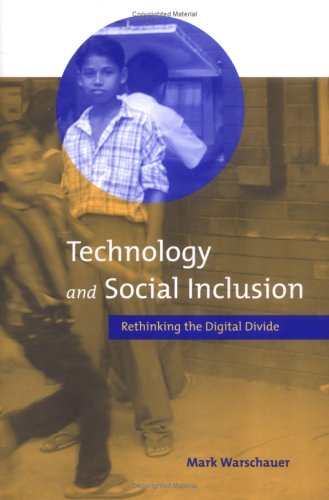Mark Warschauer9780262232241, 0-262-23224-3
Much of the discussion about new technologies and social equality has focused on the oversimplified notion of a “digital divide. Technology and Social Inclusion moves beyond the limited view of haves and have-nots to analyze the different forms of access to information and communication technologies. Drawing on theory from political science, economics, sociology, psychology, communications, education, and linguistics, the book examines the ways in which differing access to technology contributes to social and economic stratification or inclusion. The book takes a global perspective, presenting case studies from developed and developing countries, including Brazil, China, Egypt, India, and the United States.A central premise is that, in today’s society, the ability to access, adapt, and create knowledge using information and communication technologies is critical to social inclusion. This focus on social inclusion shifts the discussion of the “digital divide” from gaps to be overcome by providing equipment to social development challenges to be addressed through the effective integration of technology into communities, institutions, and societies. What is most important is not so much the physical availability of computers and the Internet but rather people’s ability to make use of those technologies to engage in meaningful social practices. |
Table of contents :
Team DDU……Page 1
Contents……Page 9
Acknowledgments……Page 10
Introduction……Page 16
1 Economy, Society, and Technology: Analyzing the Shifting Terrains……Page 26
2 Models of Access: Devices, Conduits, and Literacy……Page 46
3 Physical Resources: Computers and Connectivity……Page 64
4 Digital Resources: Content and Language……Page 96
5 Human Resources: Literacy and Education……Page 124
6 Social Resources: Communities and Institutions……Page 168
7 Conclusion: The Social Embeddedness of Technology……Page 214
Notes……Page 232
References……Page 240
Index……Page 262 |

Reviews
There are no reviews yet.